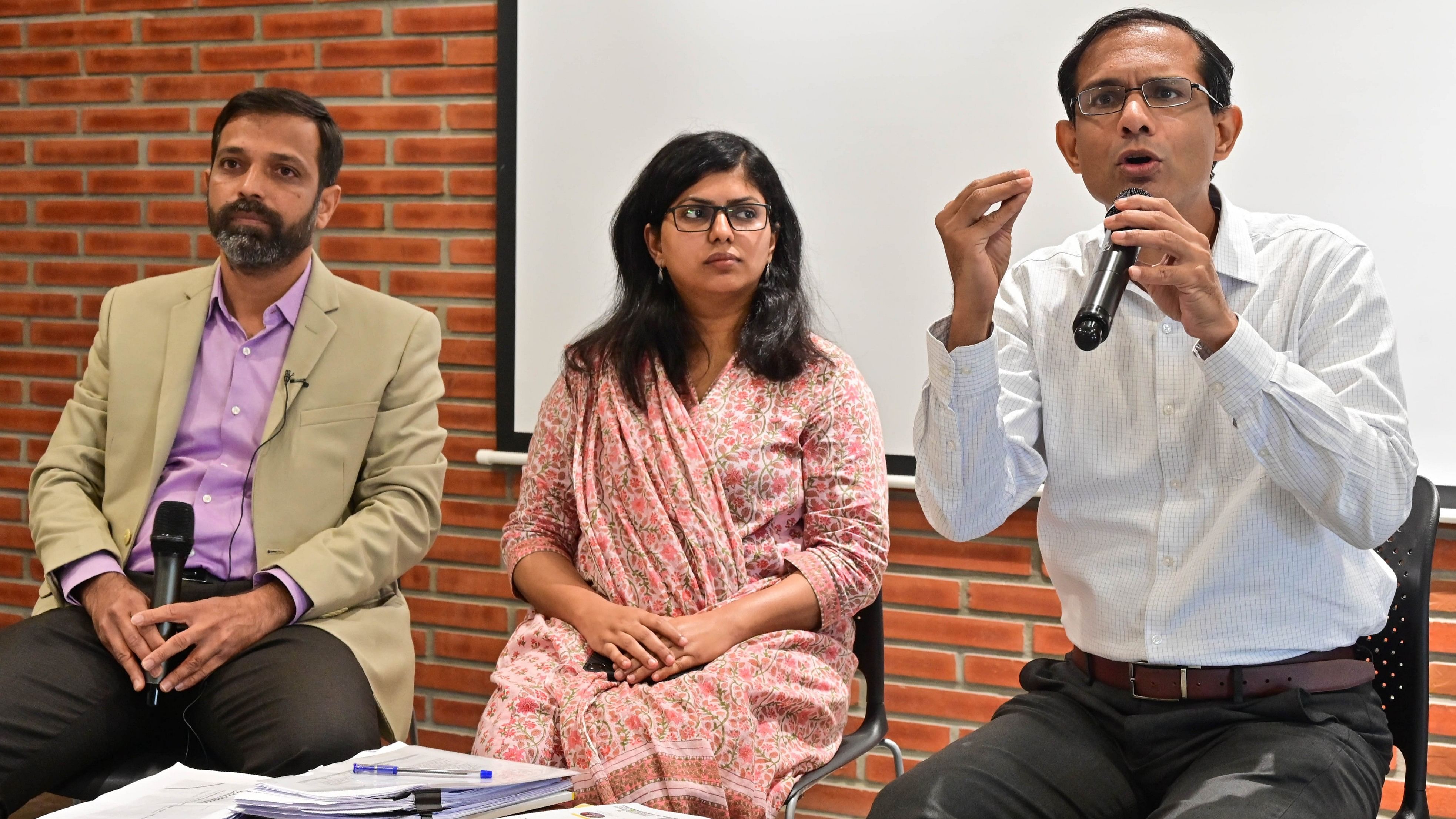
Santosh Naragund, Head, Participatory Governance, Janaagraha Centre for Citizenship & Democracy, speaks at a discussion on Bengaluru's future governance at Cobalt on Church Street on Thursday. CEO Srikanth Vishwanathan and VR Vachana of Municipal Law and Policy Programme at Janaagraha were also present.
DH PHOTO/Prashanth HG
Bengaluru: Janaagraha, a not-for-profit organisation focused on urban governance reforms across India, has raised serious concerns about the Greater Bengaluru Governance (GBG) Bill 2024, tabled during the recent assembly session.
The NGO criticised the bill, stating that it envisions a "super municipality" for Bengaluru that would effectively function as an "outsourced wing of the state government".
Speaking to reporters on Thursday, Janaagraha CEO Srikanth Visvanathan questioned why the government overlooked the "fairly reasonable" bill proposed by the four-member Brand Bengaluru committee, which was initially formed in 2014 and reconstituted in 2023.
Visvanathan argued that the revised GBG Bill adds another layer of bureaucracy and extends state government control over the city, rather than decentralising governance and bringing it closer to the people.
"Regrettably, the bill introduced in the session lacks focus on urban planning and fails to ensure adequate integration and coordination. This legislation is likely to set Bengaluru back," he stated.
To support its stance, Janaagraha compared the city governance systems under two different proposals: the GBG Bill tabled in the session and the Brand Bengaluru committee's GBG Bill (BBC-GBG Bill).
The NGO also reviewed the BBMP Act, 2020 and the Karnataka Municipal Corporations (KMC) Act, 1976. Across four key parameters, the organisation found that the GBG Bill performed only half as well as the BBC-GBG Bill.
In the urban planning and design category, the tabled GBG Bill scored zero compared to the BBC-GBG Bill, which received 6.33 points on a scale of 1-10.
The BBC-GBG Bill proposed integrated planning under the Greater Bengaluru Authority. In the urban capacities and resources category, the committee’s bill scored nine points, while the GBG Bill managed only 6.50 points. The tabled bill also fell short by two points in the categories of empowered and legitimate political representation, as well as transparency and accountability.
VR Vachana, head of municipal law and policy at Janaagraha, acknowledged that while the committee’s bill could be improved, it is significantly better than the one tabled in the recent assembly session.
Highlighting the decline of cities like Kolkata and Kanpur, Visvanathan emphasised that Bengaluru, as a global city, should not be taken for granted by relying on an outdated governance framework.